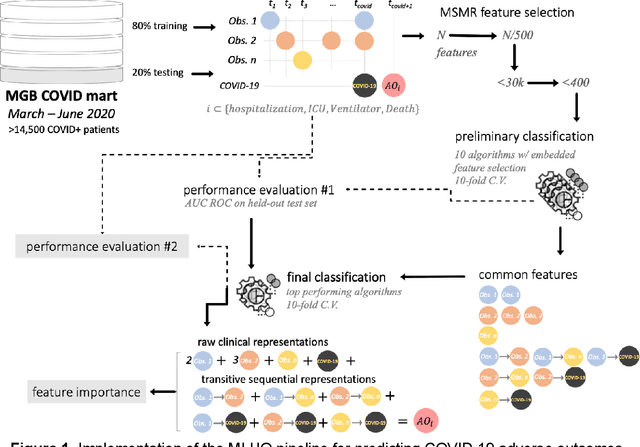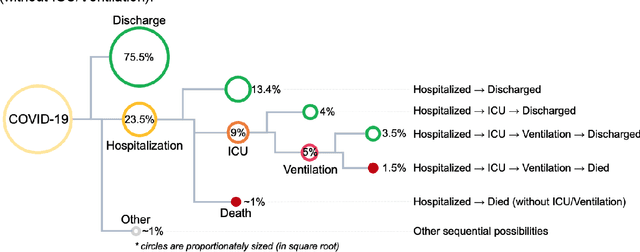Individualized Prediction of COVID-19 Adverse outcomes with MLHO
Paper and Code
Aug 10, 2020



The COVID-19 pandemic has devastated the world with health and economic wreckage. Precise estimates of the COVID-19 adverse outcomes on individual patients could have led to better allocation of healthcare resources and more efficient targeted preventive measures. We developed MLHO (pronounced as melo) for predicting patient-level risk of hospitalization, ICU admission, need for mechanical ventilation, and death from patients' past (before COVID-19 infection) medical records. MLHO is an end-to-end Machine Learning pipeline that implements iterative sequential representation mining and feature and model selection to predict health outcomes. MLHO's architecture enables a parallel and outcome-oriented calibration, in which different statistical learning algorithms and vectors of features are simultaneously tested and leveraged to improve prediction of health outcomes. Using clinical data from a large cohort of over 14,000 patients, we modeled the four adverse outcomes utilizing about 600 features representing patients' before-COVID health records. Overall, the best predictions were obtained from extreme and gradient boosting models. The median AUC ROC for mortality prediction was 0.91, while the prediction performance ranged between 0.79 and 0.83 for ICU, hospitalization, and ventilation. We broadly describe the clusters of features that were utilized in modeling and their relative influence on predicting each outcome. As COVID-19 cases are re-surging in the U.S. and around the world, a Machine Learning pipeline like MLHO is crucial to improve our readiness for confronting the potential future waves of COVID-19, as well as other novel infectious diseases that may emerge in the near future.
 Add to Chrome
Add to Chrome Add to Firefox
Add to Firefox Add to Edge
Add to Edge